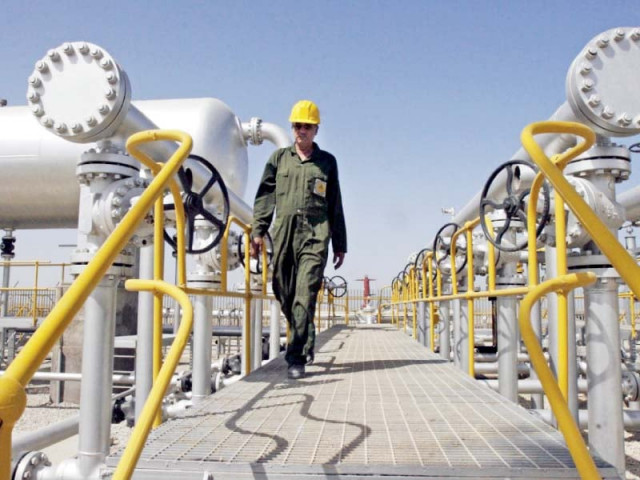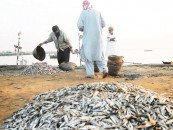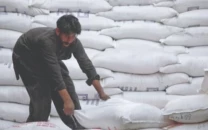IP pipeline: Sanctions had not halted work on project, says expert
Says nuclear agreement will give fresh impetus to cooperation in energy field .

The removal of international restrictions on Tehran will also reflect favourably in energy prices as resumption of Iranian supplies is expected to put a downward pressure on prices that will persist in the long run. PHOTO: AFP
The historic nuclear deal with global powers is expected to strengthen Iran’s position as a regional player and the lifting of sanctions will give a big boost to cooperation in the energy field as well as in other sectors of the economy.
“Of course, Iran’s position has strengthened after the nuclear agreement, but remember Iran is a more diversified economy [unlike Saudi Arabia], and removal of sanctions will lead to growth in many sectors of the economy. It’s not just oil and gas,” said Mahdi Kazemzadeh, CEO of UK-based firm Afraz Advisers, in an emailed response to queries sent by The Express Tribune.
Afraz Advisers is the world leader in providing international oil and gas companies with deep insight into the Iranian energy sector.
Speaking about the Iran-Pakistan (IP) gas pipeline, Kazemzadeh said work on the project had not stalled because of sanctions, but in fact it was mainly due to the inability of Pakistan to finance its end of the project and build the pipeline.
Replying to a question, he pointed to the regional imbalance in gas supply, saying many of Iran’s neighbours in the Persian Gulf would need to import natural gas in coming years. These nations included the United Arab Emirates, Kuwait and someday ever Saudi Arabia, and Iran had the capacity to supply them with gas with the coming on stream of energy-rich South Pars field.
Iran is looking to attract over $100 billion in its upstream oil and gas sector over the next decade in a new scheme of contracts and one-fifth of the amount will be spent on priority fields in the country’s west close to Iraq.
In the downstream sector, Iran is seeking over $62 billion to build the capacity to export around 100 billion cubic metres of gas by 2020 besides meeting domestic demand.
According to Kazemzadeh, the removal of international restrictions on Tehran will also reflect favourably in energy prices as resumption of Iranian supplies is expected to put a downward pressure on prices that will persist in the long run.
Discussing the possibility of gas export to European Union countries, Kazemzadeh said, “I see an enormous potential to revive the Nabucco pipeline project or something similar; I was at a high-level conference in Vienna where many Iranian officials laid out their ambition to export gas to Europe in the next five to ten years.
“The interesting thing is that the EU commissioner for energy is just as keen as I’d say.”
He said that there is no doubt China and Russia would have the advantage to press on with their plants, but Iran was an enormous market with space for everyone.
Published in The Express Tribune, August 9th, 2015.
Like Business on Facebook, follow @TribuneBiz on Twitter to stay informed and join in the conversation.



















COMMENTS
Comments are moderated and generally will be posted if they are on-topic and not abusive.
For more information, please see our Comments FAQ